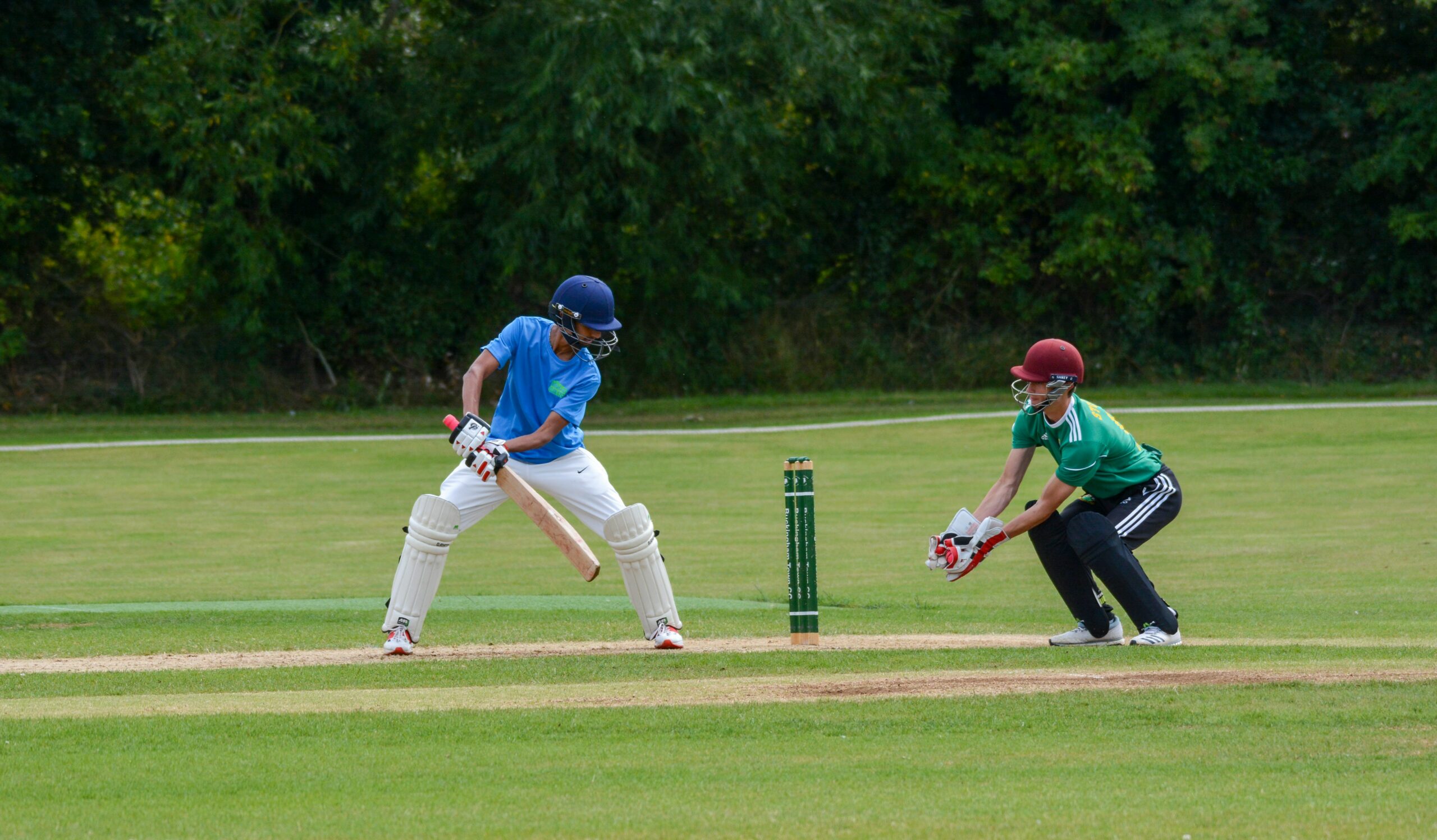Sports Betting and the Role of Regulatory Bodies: Ensuring Fair Play
Online Cricket ID, Online Cricket ID: Regulatory bodies play a crucial role in overseeing the sports betting industry to ensure fair play and protect the interests of both bettors and operators. These organizations are responsible for enforcing regulationsmonitoring complianceand investigating any potential misconduct to maintain the integrity of betting activities. Without regulatory bodiesthe sports betting market would lack the necessary oversight to prevent fraudcorruptionand unethical practices that could undermine the trust and credibility of the industry.
By setting and enforcing standardsregulatory bodies help to promote a safe and secure environment for sports betting enthusiasts. Their presence not only deters illegal activities and unethical behavior but also fosters transparency and accountability within the betting sector. Through their regulatory effortsthese bodies strive to uphold the principles of fair competitionensure consumer protectionand uphold the credibility of sports betting as a legitimate form of entertainment.
• Regulatory bodies ensure fair play and protect the interests of both bettors and operators
• They enforce regulationsmonitor complianceand investigate potential misconduct
• Without regulatory bodiesthere would be a lack of oversight leading to fraud and corruption in sports betting
• Regulatory bodies promote a safe and secure environment for sports betting enthusiasts
• Their presence deters illegal activitiesunethical behaviorand fosters transparency within the industry.
Understanding the Role of Regulatory Bodies in Ensuring Fair Play
Regulatory bodies play a vital role in upholding fairness and integrity in the realm of sports betting. These governing entities are tasked with establishing and enforcing standards that protect the interests of both bettors and operators. By monitoring and evaluating the conduct of sports betting activitiesregulatory bodies help to ensure that manipulation and fraudulent practices are minimizedthereby maintaining a level playing field for all involved.
Through the implementation of stringent regulations and oversight mechanismsregulatory bodies help to safeguard the credibility and trustworthiness of the sports betting industry. By promoting transparency and accountability among stakeholdersthese entities work towards fostering a competitive and ethical environment where fair play is upheld. Ultimatelythe role of regulatory bodies in ensuring fair play is essential in preserving the integrity and legitimacy of sports betting as a whole.
How Regulatory Bodies Maintain Integrity in Sports Betting
Regulatory bodies play a crucial role in maintaining integrity in sports betting by establishing and enforcing rules and regulations that govern the industry. These bodies ensure that sports betting operators adhere to fair practices and ethical standardsthus safeguarding the integrity of sporting events and protecting the interests of both bettors and stakeholders. By conducting rigorous monitoring and investigationsregulatory bodies can detect and deter any potential manipulation or corruption in sports bettingthereby upholding the integrity of the betting market.
Through licensing requirements and ongoing oversightregulatory bodies hold sports betting operators accountable for their actions and decisionspromoting transparency and accountability within the industry. By setting strict guidelines for conduct and implementing thorough auditing proceduresthese bodies create a level playing field where all participants are held to the same standards of fairness and honesty. This proactive approach by regulatory bodies helps to prevent fraudmatch-fixingand other illicit activities that could compromise the integrity of sports bettingultimately contributing to a more trustworthy and reputable betting environment for all involved parties.
The Impact of Regulatory Bodies on Preventing Fraud and Corruption
Regulatory bodies play a crucial role in preventing fraud and corruption within the sports betting industry. These organizations are responsible for establishing and enforcing rules and regulations that promote fairness and transparency in all aspects of sports betting operations. By implementing strict licensing requirements and conducting thorough auditsregulatory bodies can detect and investigate any suspicious activities that may indicate fraud or corruption.
Moreoverregulatory bodies also work closely with law enforcement agencies to address any illegal practices in the sports betting market. By collaborating with authorities and sharing information on potential misconductthese regulatory bodies can effectively combat fraud and corruption to safeguard the integrity of sports betting. Through their proactive measures and stringent oversightregulatory bodies play a vital role in ensuring that sports betting remains a legitimate and trustworthy industry for both operators and consumers alike.
Regulatory Bodies’ Influence on Promoting Responsible Gambling
Regulatory bodies play a crucial role in promoting responsible gambling within the sports betting industry. By implementing strict guidelines and regulationsthese bodies help to ensure that betting operators adhere to ethical practices that prioritize the well-being of consumers. Through monitoring the activities of betting companiesregulatory bodies can identify and address any potentially harmful behaviors that may lead to problem gambling.
In addition to setting the standards for responsible gamblingregulatory bodies work to educate both operators and consumers on the importance of maintaining healthy betting habits. By providing resources and support for individuals who may be at risk of developing gambling addictionsthese bodies play a key role in safeguarding the integrity of the industry. Through their proactive measuresregulatory bodies aim to create a safe and sustainable environment where individuals can engage in sports betting responsibly and without adverse consequences.
The Relationship Between Regulatory Bodies and Sports Betting Operators
: Regulatory bodies play a crucial role in overseeing the operations of sports betting operators. These bodies are tasked with creating and enforcing regulations to ensure that operators adhere to fair and ethical practices. By setting guidelines and standards for operators to followregulatory bodies help maintain the integrity of the sports betting industry. This relationship between regulatory bodies and sports betting operators serves as a checks-and-balances system to prevent fraudulent activities and promote transparency within the industry.
Sports betting operators must work closely with regulatory bodies to obtain licenses and permits to operate legally. By complying with the regulations set forth by these bodiesoperators demonstrate their commitment to operating within the boundaries of the law. This partnership between regulatory bodies and sports betting operators fosters a relationship built on trust and accountabilityultimately benefiting both parties and the consumers involved in the sports betting market.
The Challenges Faced by Regulatory Bodies in Regulating Sports Betting
One of the main challenges faced by regulatory bodies in the realm of sports betting is the ever-evolving landscape of technology. With the rise of online betting platforms and mobile appsit has become increasingly difficult for regulatory bodies to monitor and enforce compliance with regulations. The speed and anonymity of online transactions present a significant hurdle in ensuring that all betting activities are conducted in a fair and transparent manner.
Additionallythe global nature of sports betting poses another obstacle for regulatory bodies. As betting can take place across bordersregulatory bodies often struggle to coordinate with their international counterparts to effectively regulate the industry. Differences in regulations and enforcement mechanisms between countries further complicate the task of ensuring a level playing field for all participants in the sports betting market.
The Future of Sports Betting Regulation and Regulatory Bodies
In the rapidly evolving landscape of sports bettingthe role of regulatory bodies is becoming increasingly vital. As technology advances and the market expandsregulatory bodies will need to adapt to new challenges and find innovative ways to ensure fair playprevent fraudand uphold integrity. The future of sports betting regulation will likely see a greater emphasis on collaboration between regulatory bodiessports betting operatorsand other stakeholders to create more effective oversight mechanisms that prioritize transparency and consumer protection.
Furthermoreas the industry continues to growregulatory bodies will also need to focus on promoting responsible gambling practices and addressing emerging issues such as problem gambling and addiction. With the rise of online betting platforms and the globalization of the industryregulatory bodies will need to implement robust measures to enforce compliance with sports betting laws and safeguard the interests of consumers. The future of sports betting regulation will require proactive strategies and a forward-thinking approach to ensure that the industry remains fairtransparentand sustainable for all stakeholders involved.
How Regulatory Bodies Enforce Compliance with Sports Betting Laws
Regulatory bodies play a crucial role in enforcing compliance with sports betting laws to maintain the integrity of the industry. One primary method is through the issuance of licenses to sports betting operatorswhich come with strict regulations and conditions that must be adhered to. These regulations cover a wide range of aspectsincluding financial transparencyresponsible gambling practicesand the prevention of money laundering and fraud.
In addition to setting guidelines for operatorsregulatory bodies conduct regular inspections and audits to ensure that sports betting activities are conducted in accordance with the law. They have the authority to investigate any suspicious activitiesimpose penalties for non-complianceand even revoke licenses if necessary. By actively monitoring and enforcing compliance with sports betting lawsregulatory bodies help create a fair and transparent environment for both operators and bettors alike.
The Role of Regulatory Bodies in Protecting Consumers in Sports Betting
Regulatory bodies play a vital role in safeguarding consumers in the realm of sports betting. These entities are responsible for overseeing the operations of sports betting operators to ensure that they adhere to laws and regulations designed to protect consumers’ interests. By setting and enforcing standards for fair playtransparencyand responsible gambling practicesregulatory bodies work to create a safer and more trustworthy environment for individuals engaging in sports betting activities.
Through their regulatory effortsthese bodies aim to prevent fraudulent activities and corruption within the sports betting industry. By monitoring and investigating any suspicious behavior or practicesregulatory bodies can effectively detect and address potential instances of fraud or misconduct. Additionallythese entities work to establish frameworks that promote integrity and fairness in sports bettingultimately enhancing consumer confidence and trust in the industry.
Why are regulatory bodies important in sports betting?
Regulatory bodies play a crucial role in ensuring fair playpreventing fraud and corruptionpromoting responsible gamblingand protecting consumers in sports betting.
How do regulatory bodies maintain integrity in sports betting?
Regulatory bodies enforce strict regulations and guidelines to ensure that sports betting operators operate in a transparent and ethical manner. They also monitor betting activities to detect any irregularities.
What impact do regulatory bodies have on preventing fraud and corruption in sports betting?
Regulatory bodies implement measures such as background checksmonitoring of betting patternsand collaboration with law enforcement agencies to prevent fraud and corruption in sports betting.
How do regulatory bodies influence responsible gambling in sports betting?
Regulatory bodies set guidelines for responsible gambling practicesincluding self-exclusion programslimits on betting amountsand resources for problem gambling support. They also require operators to promote responsible gambling.
What is the relationship between regulatory bodies and sports betting operators?
Regulatory bodies oversee and regulate sports betting operators to ensure compliance with laws and regulations. They work closely with operators to address any issues and enforce compliance.
What challenges do regulatory bodies face in regulating sports betting?
Regulatory bodies face challenges such as keeping up with technological advancementsdealing with cross-border operationsand combating illegal gambling activities. They also need to balance consumer protection with industry growth.
What is the future of sports betting regulation and regulatory bodies?
The future of sports betting regulation is likely to involve more collaboration between regulatory bodiesoperatorsand other stakeholders. There may also be advancements in technology for monitoring and enforcing regulations.
How do regulatory bodies enforce compliance with sports betting laws?
Regulatory bodies conduct auditsinspectionsand investigations to ensure that sports betting operators comply with laws and regulations. They have the authority to impose penalties and revoke licenses for non-compliance.






